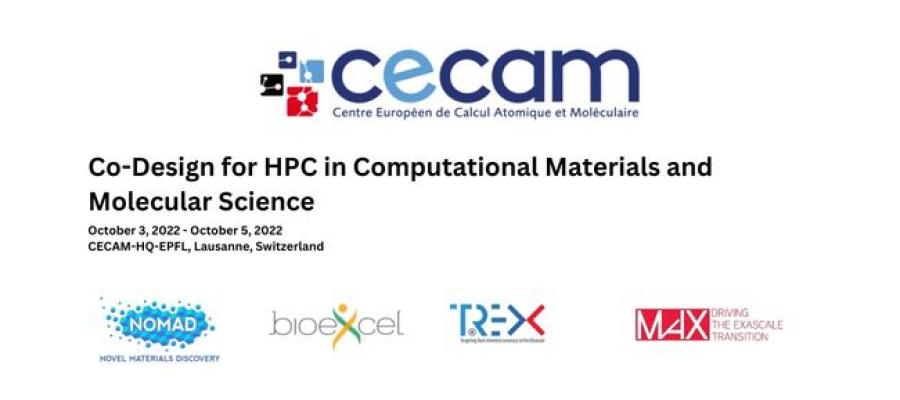
Co-Design for HPC in Computational Materials and Molecular Science
The Workshop on HPC (High Performance Computing) Co-design in Computational Materials and Molecular Science was initiated and is led by the NOMAD Center of Excellence with the joint effort of the CoEs: BioExcel, MaX, and TREX.
The workshop will gather contributions from leading scientists, technologies, and SW engineers from the fields of academia, HPC centres, HW-vendors, and industry. The workshop covers a broad range of current topics, taking materials and molecular science codes as reference HPC applications and possible co-design vehicles.
The topics to be covered are:
- existing examples of HPC co-design in materials and molecular science,
- co-design of general purpose and domain-specific libraries, kernels, and mini-apps, and
- the perspective of hardware manufacturers, integrators, and data center owners.
The workshop will focus in particular on, and attempt to draw conclusions about:
- the relationship between algorithms and computer architectures in materials science,
- the connection between parallel programming technologies and runtime systems, and
- the interplay of the above layers for a wide spectrum of computer architectures, within the selected scientific domain.
We aim to identify how scientific software developers in materials science can influence hardware manufacturers as well as middleware and system-level software developers, and vice versa. In particular, we seek to determine how co-design is employed in the development of the new HPC processors and of the related software stack, including with respect to compilers and optimized libraries, schedulers and IO, and container technologies.
Hardware HPC vendors and integrators will share their vision on co-design, while key people from the scientific software development community will discuss the adoption of state-of-the-art technologies when porting their codes on emerging computer architectures. Consequently, the workshop will provide a rare and valuable opportunity to foster close contacts and the exchange of ideas between the scientific and technical communities.
For further details and registration, click this link.


